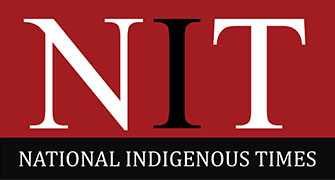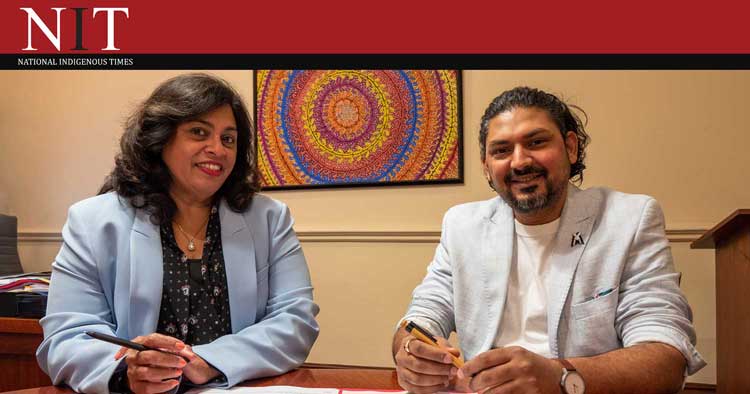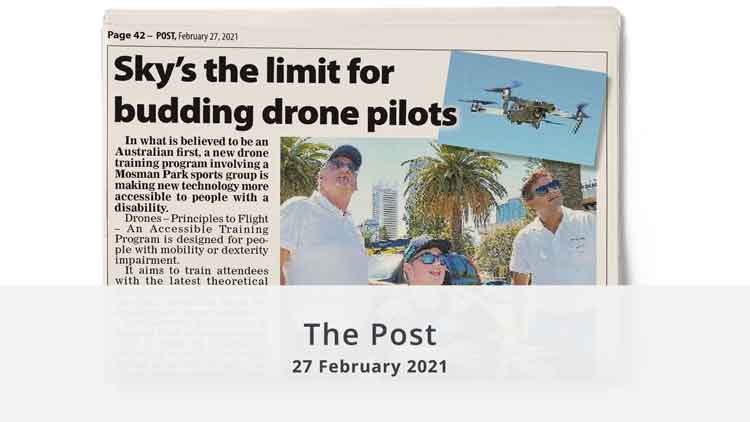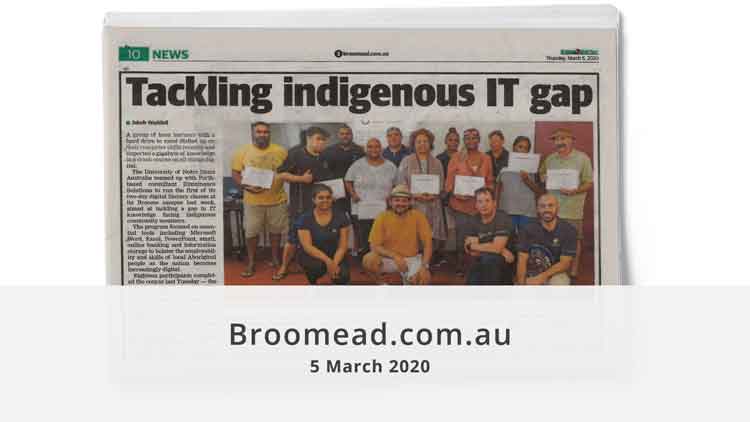The University of Notre Dame Australia and Illuminance Solutions have teamed up to tackle digital literacy in Broome’s Indigenous community.
Training programs teaching people the basics of Microsoft Office programs including Word, Outlook, PowerPoint and Excel will roll out at Notre Dame’s Broome Campus next year and be taught by illuminance staff on site.
Notre Dame Broome’s Aboriginal Studies Coordinator, Gillian Kennedy backed the importance of teaching communities basic digital literacy skills.
“A lot of Aboriginal people live in remote places and find it difficult to leave their communities for education,” Ms Kennedy said.
“More and more higher education is happening in the online space … just having the basics in digital literacy is going to open up a whole lot of opportunities that a lot of people haven’t had access to before.”
The programs will run four times in 2020 and will be open to all members of the community – not just students.
Ms Kennedy said Notre Dame will attract participants through the networks the university has previously built through past programs.
“We already have a pool of people who have come in for [other] courses,” Ms Kennedy said. The fact that the course is free will also be a big draw card for people.
“[People] really want educational opportunities and if it’s free … it will be quite popular.”
A report from Universities Australia has demonstrated just this, with the organisation’s first annual report on their Indigenous strategy showing that annual growth in Indigenous student enrolments has near tripled that of non-Indigenous student enrolments in more recent years.
“For the first time the gap in university enrolments … has actually closed a little bit because there’s been more Aboriginal and Torres Strait Islander people enrolling in university degrees … now is as good a time as there has ever been to be supporting Aboriginal and Torres Strait Islander people to go to university,” Ms Kennedy said.
“It’s our responsibility to make sure that everybody has equal access to education – especially at university level.”
With almost 50 percent of Indigenous households without home internet access, illuminance Solutions CEO, Nilesh Makwana said it’s often forgotten that remote communities don’t have strong digital infrastructure.
“[Digital literacy is] important for everybody, regardless of what community they belong to. In this instance, the community which we’re focusing on is the one most disadvantaged in Australia,” Mr Makwana said.
The new training program is based off a digital literacy program illuminance Solutions ran at University of Western Australia’s (UWA) UniHall – a residence building for students.
Mr Makwana said the program has run for the past three semesters and has been successful in teaching basic digital literacy.
“A lot of [students] have to apply for grants, for jobs, for tax [refunds] online … [but] don’t know how to make PDFs or create presentations,” Mr Makwana said.
“[They’re] studying at university … but they don’t know how to use the templates, do the right formatting … many small, small elements which can be crucial for daily life … in the study environment or work environment.”
The new training program is based off a digital literacy program illuminance Solutions ran at University of Western Australia’s (UWA) UniHall – a residence building for students.
Mr Makwana said the program has run for the past three semesters and has been successful in teach- ing basic digital literacy.
“A lot of [students] have to apply for grants, for jobs, for tax [refunds] online … [but] don’t know how to make PDFs or create presentations,” Mr Makwana said.
“[They’re] studying at university … but they don’t know how to use the templates, do the right formatting … many small, small elements which can be crucial for daily life … in the study environment or work environment.”

Published by National Indigenous Times (NIT) 8th November 2019.
Written by Hannah Cross.


